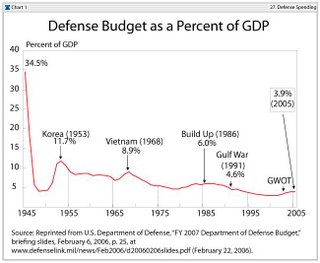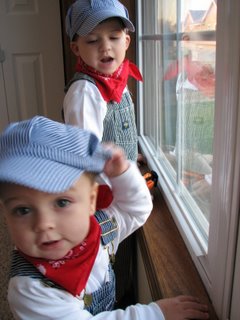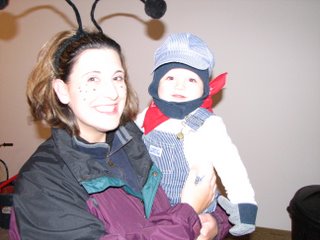Where I've been. Well, there's only
one thing a man can do when he's suffering from a spiritual and existential funk, and it's not going to the zoo to flip off the monkeys. Although that is fun. And rewarding. Stupid monkeys.
No, the only thing a man can do is blog. Blog like the wind. Blog until his whole heart and soul is on the world wide web for everyone to see.
I'm not really in a funk--I've just been busy and preoccupied. I've been following the post-election fallout with a heavy heart--not because the Republicans lost, but because these elections don't mean anything anymore. Trying times are supposed to bring out the greatness in people, especially, I hope, Americans. But I haven't seen any greatness, except at the mid to lower levels of our military.
So a little William Wallace seems appropriate as advice to our leaders:
Men don't follow titles, they follow courage. Now our people know you. Noble, and common, they respect you. And if you would just lead them to freedom, they'd follow you. And so would I.
True, true, true.
But enough of that, we know down which path these thoughts take us. I don't want to buy any more suits.
This world provides distractions. For example, in regards to our friend Mel Gibson, a thought occurs to me about his drunken anti-Semitism "sugar-tits" rant of earlier this year. A lot of people weighed in on both sides about what the precious, delicious alcohol does to an individual when consumed in large quantities. Some say it makes an individual rant incoherent about stuff they don't actually think or believe. Others say the booze releases inhibitions, and allows people to say what they actually think.
There's merit and truth on both sides. I've noticed that some people who have imbibed a few grow more, let's say,
friendly than usual. I've noticed that on one or two occasions I've drank one or two gin and tonics and decided that I'm Dean Martin, only to be told later that Barney from the Simpsons was closer to the mark. Everyone knows that liquor changes the equation at bars and clubs, or else some genius would not have invented the phrase "beer-goggles."
Then again, one time when I had a couple gin and tonics and the missus was quite pregnant with our first boy, I informed her, in all seriousness, that our child would be the first black president. So there's that.

I don't have the first clue what Mel was thinking that night.
Another example of distractions. Ohio State vs. Michigan, about which I have nothing to say except that I hope the Buckeyes win, I wish they would win big so it won't be so damned stressful, but I know the game will be close to torture me and everyone else as much as possible. Which is exactly how it should be.
The Game, as it should be known, will follow a party. Not coincide, mind you, but
follow. Because the party's not about the game, but rather a little matter of the first birthday of the little brother to the first black president.
How is that for time flying? As of today, my youngest son is now
one year old.
 What that also means.
What that also means. We are approaching the one year anniversary of moving to Kansas. One year ago, my son Anthony was born in Northern Virginia. Within a week, my parents were in town. Mom and my wife were watching the newborn, and I drove my dad and my oldest into the capital to go to the Air and Space Museum. As we crossed the 14th Street Bridge, I got the phone call offering the job--if I could start within the next few weeks.
I said I didn't think we could do it, what with the new baby and all. When we got home, I told my wife, and she had me call them back. A few weeks later I started the new job. We moved right after Christmas.
And here we are, one year later, days and nights tumbling one after another. Life continuing. Another election, another big game, a first birthday. Days and nights. Nights and days.


At least the view ain't bad.
Go Buckeyes.












